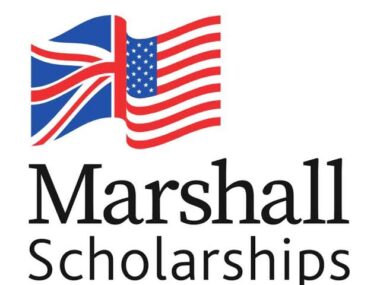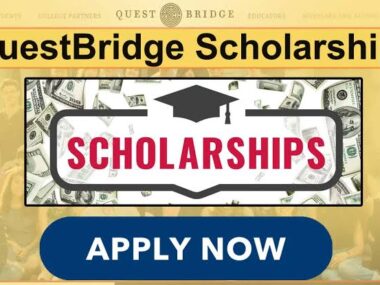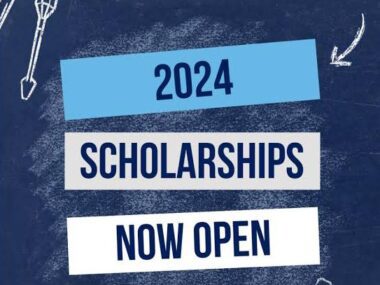An In-Depth Guide
Introduction
The Barry M. Goldwater Scholarship is one of the most prestigious undergraduate scholarships for students pursuing careers in mathematics, engineering, and natural sciences. Established by Congress in 1986 to honor former Senator Barry M. Goldwater, this scholarship supports sophomores and juniors exhibiting exceptional potential and commitment to careers in these important fields through research experience. With the 2024 application cycle around the corner, this guide will cover all the key details about the Barry M. Goldwater Scholarship to help interested and eligible students make informed decisions.
The Goldwater Scholarship is awarded on a competitive, merit basis to college sophomores and juniors who intend to pursue research careers in eligible fields of science, mathematics, and engineering. With only a few selected from hundreds of top applicants each year, it is crucial for candidates to thoroughly understand the Goldwater criteria, process, and requirements.
Overview of the Goldwater Scholarship
Before delving into specifics, let’s take a look at some key facts about the Barry M. Goldwater Scholarship:
- Awarded annually to undergraduate sophomores and juniors enrolled at accredited U.S. colleges/universities
- Provides up to $7,500 yearly for educational expenses (tuition, fees, books) for remaining years of bachelor’s degree
- Scholars must demonstrate strong academic record, endorsement from their institution, and potential for a research career in eligible STEM fields
- Intended to support students pursuing research-based master’s or doctoral degrees in fields like mathematics, natural sciences, engineering, technology
- Total of approximately 300-400 Goldwater Scholars named nationwide every academic year
Established in 1986, the Goldwater Scholarship program seeks to encourage outstanding STEM students to pursue graduate studies and consider academic or research careers. Over its 35+ year history, thousands of scholars have gone onto prestigious graduate programs and leadership roles in mathematics, sciences, and engineering across academia, government, and industry. The scholarship is named after former Senator Barry M. Goldwater, who played an instrumental role in establishing NASA and advocating for science/technology in the U.S. government. While it offers substantial financial support for educational costs, the Goldwater Scholarship is perhaps most valuable for the prestige, opportunities, and springboard it provides recipients in their future careers.
Eligibility Requirements
To be eligible for the Goldwater Scholarship, applicants must meet the following criteria:
- Be nominated by their college/university (self-nominating is not permitted)
- Be enrolled as a sophomore or junior at a regionally accredited U.S. college/university
- Have a college GPA of at least B (3.0 on a 4.0 scale)
- Be majoring in mathematics, natural sciences, or engineering
- Have completed at least one but not more than three full-time academic years of study by the beginning of the scholarship academic year
- Demonstrate a clear interest in and potential for research experience in eligible science, mathematics, or engineering field
The Goldwater Scholarship is open to those pursuing bachelor’s degrees in fields within natural sciences like biology, chemistry, physics; mathematics; computer/computational sciences; materials or bioengineering; cognitive or behavioral sciences; or certain interdisciplinary areas integrating natural sciences. Some examples of eligible majors include biochemistry, applied physics, computer engineering, environmental science, neuroscience, etc. Students who have already earned bachelor’s degrees or higher are not eligible to apply.
Application Components and Process
Successfully applying to the highly competitive Goldwater Scholarship involves careful preparation well in advance. Candidates must submit applications directly through their nominating institution by early December/January each year. The core application components are:
Personal Statement
This 2-page essay is an opportunity for applicants to convey their research interests, career aspirations, fit with Goldwater goals, and distinguishing experiences. It should be compelling but concise.
Résumé/CV
A 2-page resume highlighting academic achievements, STEM coursework, research experience, publications, honors/awards, leadership, work/volunteer activities, and future plans.
College Transcript
An official college transcript including all courses and grades completed thus far.
Recommendation Letters
At least three recommendation letters are required – two from STEM faculty who can endorse academic abilities and one from a non-STEM faculty or employer.
Endorsement Form
This form is signed by an institutional representative who verifies all credentials and nominates the student.
After the initial application deadline, institutions will review submissions and endorse top candidates for forwarding to national panel review. Goldwater representatives conduct virtual interviews in the spring, and then awards are announced by late April each year. Let’s move into tips for standing out at each stage.
Strategies for a Competitive Application
With so many talented applicants each cycle, candidates must differentiate themselves from the start. Here are some strategies for submitting a truly competitive Goldwater application:
Choice of Major/Courses
Prioritize STEM majors and course loads aligned with research interests mentioned in your personal statement. Rigorous math, science, and quantitative courses show passion.
Research Experience
Highlight any lab experience, conference presentations, or publications early in your academic career, even if unpaid or uncredited. Demonstrate interest in pursuing research to its fullest extent.
Leadership and Service
Outside activities enhance application if research-related, like tutoring STEM peers or serving on related student groups/committees. Note any awards for academia or extracurricular roles.
Faculty Relationships
Get to know STEM professors beyond the classroom and have them attest to their work ethic and potential via strong letters describing relevant projects and mentorship. Start cultivating these early.
Personal Statement
Clearly articulate both intended academic pursuits and tangible career goals. Be specific, linking interests with Goldwater’s mission instead of generic. Prove research drive.
Paying attention to these application components from the first year of college positions candidates well for Goldwater selection and prestigious national fellowships in general. With strategic resume-building, Goldwater interviews are less daunting too.
Virtual Interview Tips
If selected as a Goldwater Scholar finalist, candidates participate in virtual interviews with academic panelists before final awards are made. Here are some best practices to excel during this stage:
- Prepare answers to common questions about self, background, research interests, future plans in advance
- Practice interviewing with faculty/friends to get comfortable speaking about experiences confidently
- Ask interviewers for clarification if needed instead of guessing or speculating
- Make eye contact with a video camera rather than phone/laptop screen
- Speak clearly and at a moderate pace – no filler words like “um,” “like,” etc.
- Highlight hands-on learning through examples from projects not just explanations
- Display enthusiasm for STEM topics without coming across as arrogant
- Send thank you emails to panelists afterward to leave positive impression
- Review your interview to note areas for improvement should there be future opportunities
By investing time in thoughtful preparation, candidates can showcase research qualifications and passion to standing out among final competitors. Virtual interviews have nuances to navigate, too, so practicing delivers comfort during this intimidating yet crucial stage.
Frequently Asked Questions
Here are answers to some common questions about applying for the Goldwater Scholarship:
How do I get nominated by my school?
Contact professors, advisors, or program coordinators involved with undergraduate research programs to express interest. Having a track record of academic success and research involvement makes you a strong candidate schools want to endorse.
What if my major isn’t listed as eligible?
Check if your major integrates multiple disciplines like neuroscience or biochemistry. You can also inquire if an interdisciplinary focus combining natural science with another area like economics would be considered.
Can international or DACA students apply?
No, the Goldwater Scholarship is only open to U.S. citizens, nationals, or permanent residents. However, there may be other opportunities, so discuss options with an advisor.
If not selected initially, can I reapply?
Yes! Previous applicants who were not awarded are welcome to update their applications and reapply in subsequent cycles. Leverage feedback and continue building your research experience.
How important is winning other awards?
While not required, demonstrating a track record of excelling academically and through research-focused activities like published work, conference presentations, and previous scholarships signals your commitment and potential to reviewers.





